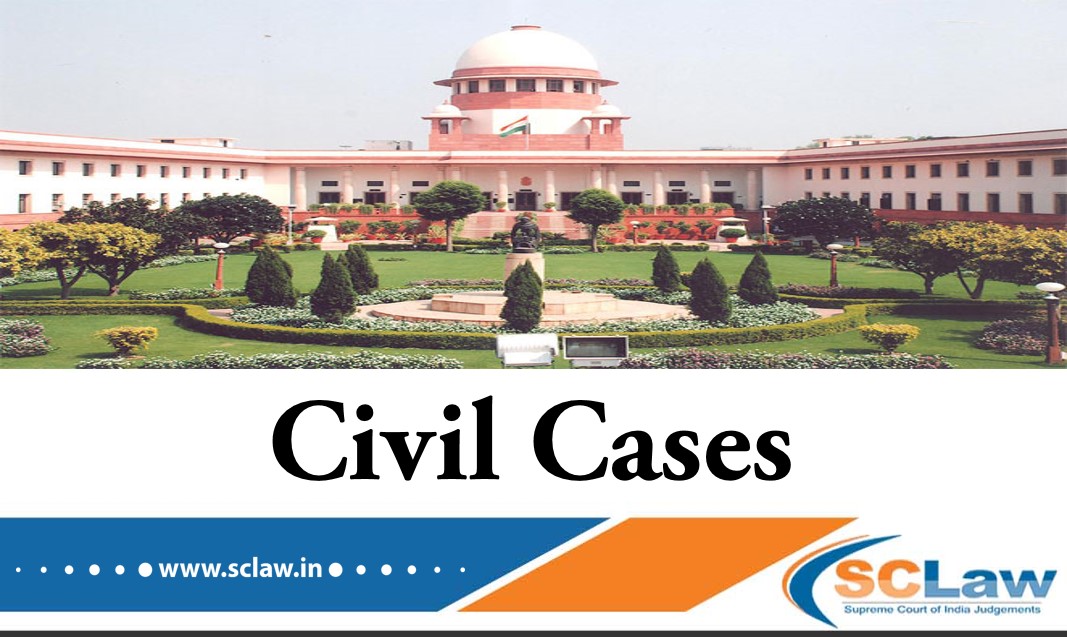The question before the High Court was whether the remand order of the Appellate Court was legal or not. Second, instead of deciding the aforementioned question, the High Court proceeded to decide the complaint itself on its merits and while allowing the complaint, sentenced the appellant (accused) with simple imprisonment for 2 months along with a direction to pay compensation of Rs. 3 Lakhs to respondent No.1 (complainant). It was not legally permissible.
SUPREME COURT OF INDIA DIVISION BENCH SUSANTA DEY — Appellant Vs. BABLI MAJUMDAR AND ANOTHER — Respondent ( Before : Abhay Manohar Sapre and Dinesh Maheshwari, JJ. ) Criminal Appeal…
–The appellants herein have been convicted and sentenced for the offences punishable under Sections 365 and 352 of the Indian Penal Code–HELD –On going through the evidence of PW1 in its entirety, we concur with the opinion rendered by the courts below that her evidence appears to be natural, consistent, probable and reliable. Her evidence remains unimpeached on material particulars. PW1 has given the details of the incident in question and we do not find any major contradiction in her evidence so as to disbelieve her testimony.
SUPREME COURT OF INDIA FULL BENCH RAJAGOPAL AND OTHERS — Appellant Vs. THE STATE OF TAMIL NADU — Respondent ( Before : N.V. Ramana, Mohan M. Shantanagoudar and Indira Banerjee,…
Penal Code, 1860 (IPC) – Sections 141, 147, 149 and 302 – Criminal Procedure Code, 1973 (CrPC) – Section 157 – Mere presence in an unlawful assembly cannot render a person liable unless there was a common object, being one of those set out in Section 141 I.P.C
SUPREME COURT OF INDIA FULL BENCH AMRIKA BAI — Appellant Vs. THE STATE OF CHHATTISGARH — Respondent ( Before : N.V. Ramana, Mohan M. Shantanagoudar and Indira Banerjee, JJ.…
Penal Code, 1860 (IPC) – Sections 170, 395 and 412 – Criminal Procedure Code, 1973 (CrPC) – Section 313 – Dacoity –While maintaining the conviction, the impugned judgment and order passed by the High Court by which the accused are sentenced to undergo seven years R.I. is hereby modified and both the accused are sentenced to undergo five years R.I. for the offences for which they are convicted – Appeals partly allowed.
SUPREME COURT OF INDIA DIVISION BENCH JAHANGIR HUSSAIN AND OTHERS — Appellant Vs. STATE OF WEST BENGAL — Respondent ( Before : L. Nageswara Rao and M.R. Shah, JJ. )…
Arbitration and Conciliation Act, 1996 – Section 11(6) – Appointment of independent arbitrator – Whether the Chief Justice or his Designate in exercise of power under Section 11(6) of the Act should directly make an appointment of an independent arbitrator without, in the first instance, resorting to ensure that the remedies provided under the arbitration agreement are exhausted. HELD The appellants are directed to appoint the arbitrator in terms of clause 64(3) of the agreement
SUPREME COURT OF INDIA DIVISION BENCH UNION OF INDIA — Appellant Vs. PARMAR CONSTRUCTION COMPANY — Respondent ( Before : A.M. Khanwilkar and Ajay Rastogi, JJ. ) Civil Appeal No.…
Industrial Disputes Act, 1947 – Section 10 – Claim for Regularization – Industrial reference – High Court was right in observing that the remedy of the appellant and respondent Nos. 46 lies in applying to the Central Government to make an industrial reference to the Industrial Tribunal under Section 10 of the ID Act
SUPREME COURT OF INDIA DIVISION BENCH SUNIL KUMAR BISWAS — Appellant Vs. ORDINANCE FACTORY BOARD AND OTHERS — Respondent ( Before : Abhay Manohar Sapre and Dinesh Maheshwari, JJ. )…
Evidence Act, 1872 – Section 27 – Abduction and murder – Merely because the actual recovery of the body happened before the accused lead the police to the scene, it does not, in the facts and circumstances of this case, negate the validity of the recovery based on a confession, in terms of Section 27 of the Evidence Act.
SUPREME COURT OF INDIA FULL BENCH PATTU RAJAN — Appellant Vs. THE STATE OF TAMIL NADU — Respondent ( Before : N.V. Ramana, Mohan M. Shantanagoudar and Indira Banerjee, JJ.…
Abetment to Suicide—Proximity of Time—Conviction is not sustainable on the allegation of harassment without there being any positive action proximate to the time of occurrence on the part of the accused, which led or compelled the person to commit suicide.
2019(1) Law Herald (SC) 316 : 2019 LawHerald.Org 521 IN THE SUPREME COURT OF INDIA Before Hon’ble Mr. Justice L. Nageshwara Rao Hon’ble Mr. Justice M.R. Shah Criminal Appeal No.…
Motor Vehicles—No vehicle can be altered so as to change original specification made by manufacturer.
2019(1) Law Herald (SC) 296 : 2019 LawHerald.Org 522 IN THE SUPREME COURT OF INDIA Before Hon’ble Mr. Justice Arun Mishra Hon’ble Mr. Justice Vineet Saran Civil Appeal Nos. 219-222…
Criminal Procedure Code, 1973, S.482~Quashing~Complaint which is merely an attempt to wreck vengeance by the complainant against accused is liable to be quashed being abuse of process of law
2019(1) Law Herald (SC) 288 : 2019 LawHerald.Org 520 (2019) AIR(SC) 535 : (2019) 1 Scale 355 IN THE SUPREME COURT OF INDIA Before Hon’ble Mr. Justice Uday Umesh Lalit…














